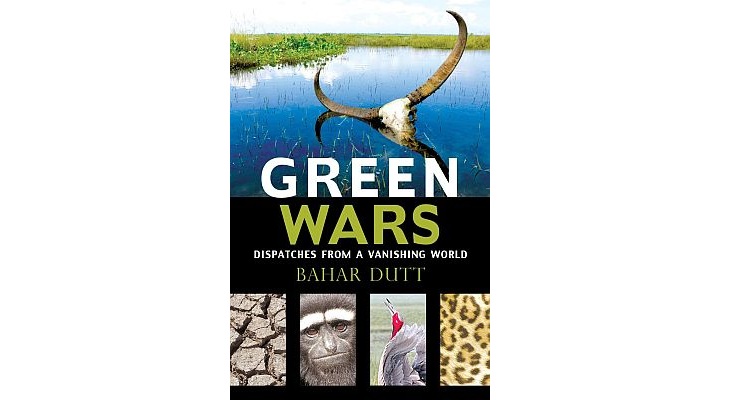By Rabish Chandra
Author: Bahar Dutt; Publisher: Harper Collins; Price: Rs 250; Extent: 172 pages; Non Fiction
Visit ORGANIC SHOP by Pure & Eco India
Green Wars—Dispatches from a Vanishing World spans 12 chapters, which are presented as a chronicle of activities that Dutt, as a conservationist and journalist, undertook. Dutt metamorphosed from being a conservation biologist to a journalist. Her first significant broadcast story was about Sarus Cranes and the destruction of their habitat by construction of an airport.
She starts the narrative of her journey with the story of snakes and their hunters. It’s interesting to learn about the transformation of the snake-charming community. In the words of Dutt, “This community, once revered for its magical skills, now lived on the edge of poverty, facing arrests and seizures of their snakes”. To make ends meet, the snake charmers now perform at musical concerts with their traditional musical instrument, the Been, serving as a gimmicky prop.
Dutt then moves on to discuss the Chambal area and the Gharial, underlining the serious danger to the species by poachers. She advocates community engagement in conservation of the creatures with the help of vigilant fishermen.
The chapter on the threat to forest biodiversity reminded me of my college excursion trip to Northeast India, where I had gone to study the geography and vegetation of the region. The chapters on mining and mining mafia will make the reader realise environmental journalism is as investigative in nature as crime journalism, and can be easily as perilous, if not more.
Most importantly, through the pages, Dutt has repeatedly begged the question, ‘How much development is enough at the cost of the environment?” which I think is a crucial question to address in an economically developing nation like ours, which is also rich in biodiversity.
Green Wars is written in simple, easy-to-read English, so even young children and those not familiar with advanced English can read it. But while the language and tone is simple, it is certainly not devoid of scientific information or policy discussions, as they are suitably interjected periodically. I appreciate that critical environmental issues have been aired and discussed through stories, which makes them easier to understand and relate to. I would urge everyone to read this book in order to comprehend environmental issues and subsequently take proactive steps towards becoming responsible citizens of the country.
This book review was first published on www.indianbotanists.com



Leave a Reply